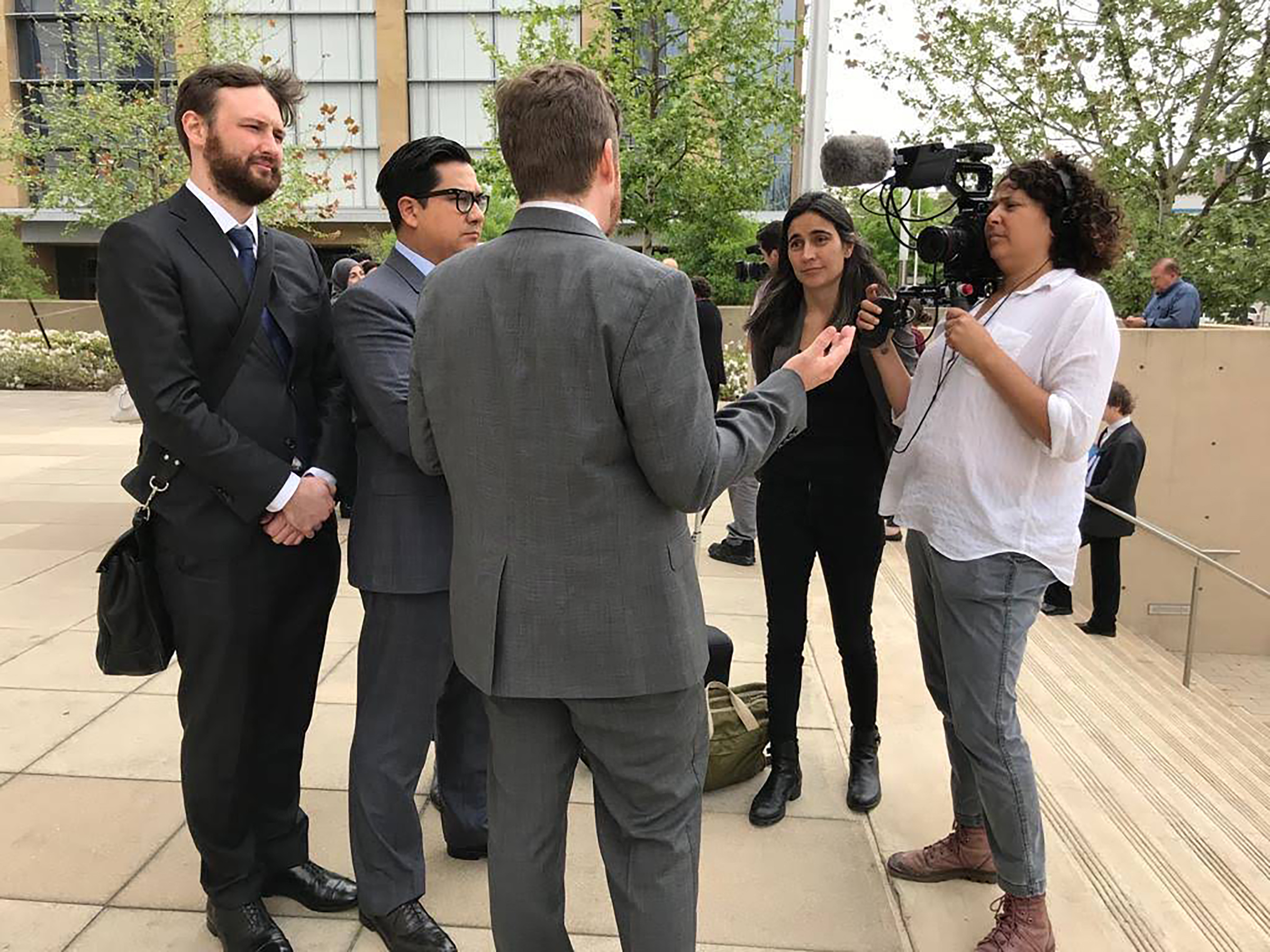
Palestinian American Bahia Amawi, a pediatric speech pathologist, lost her job with Austin, TX public schools after refusing to pledge that she would not boycott Israel. Mik Jordahl, a lawyer for Arizona’s prison system, lost his, too, after refusing to sign a contract that he would not boycott the country. And Arkansas journalist Alan Leveritt resisted pressure to renounce boycotts of Israel—jeopardizing crucial advertising money for his newspaper from the U.S. state.
Director Julia Bacha’s documentary Boycott follows the stories of these three diverse individuals to examine how U.S. laws punishing political boycotts have spread across the U.S. All three individuals sued their respective states over the restrictions.
The documentary notes that between 2015 and 2021, 33 U.S. states passed legislation or executive orders that allows for punishing individuals or companies that express support for boycotting Israel. In a majority of the states, that applies not only to Israel, but settlements in the Occupied West Bank that are considered illegal under international law.
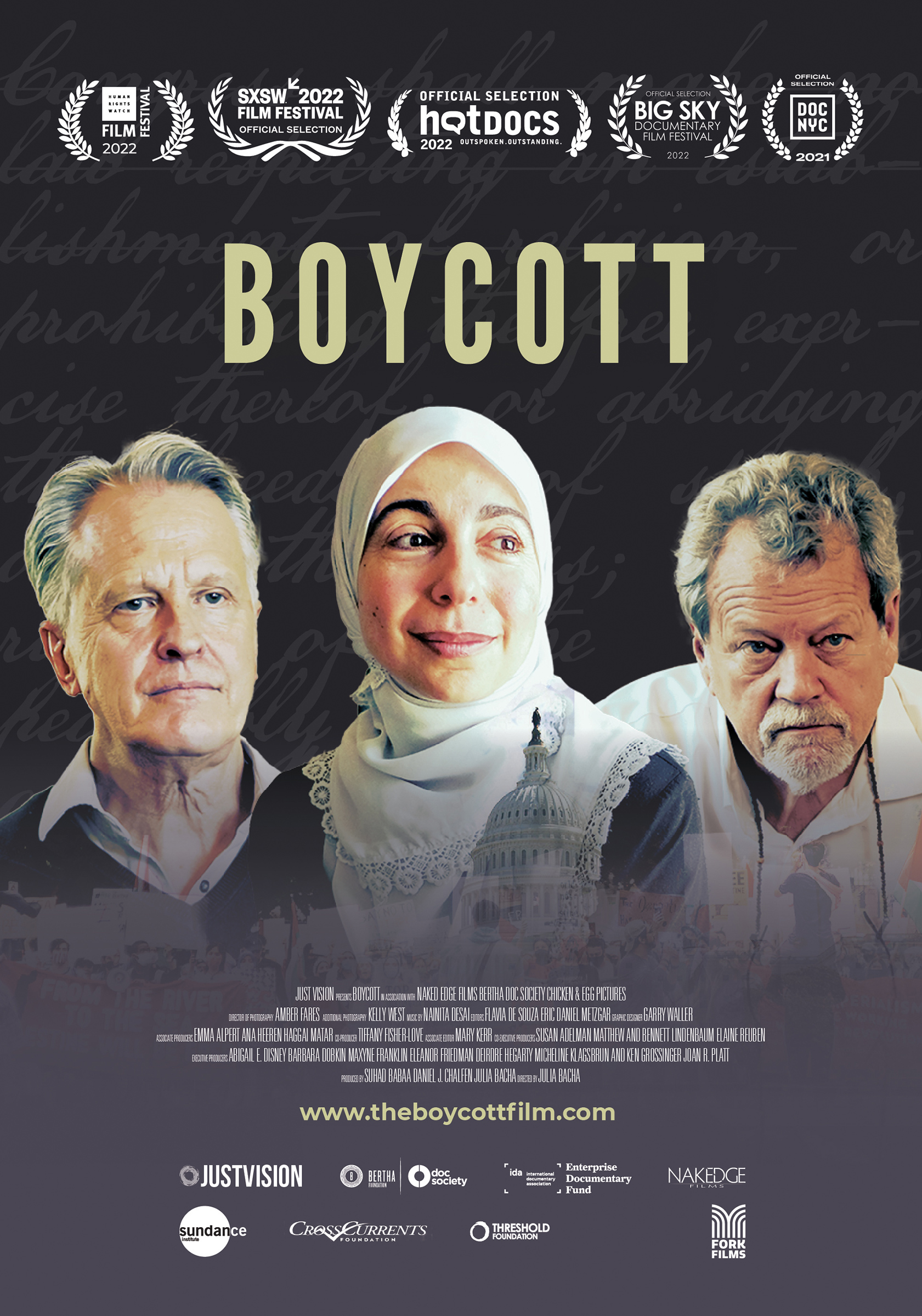
Calls to boycott Israel have grown in recent years amid concern about its treatment of Palestinians. The Boycott, Divestment, and Sanctions movement—which was formally launched in 2005 by a coalition of about 170 Palestinian grassroots and civil society groups—targets international companies they say are engaged in violations of Palestinian human rights. The movement says it draws its inspiration from boycotts of South Africa during apartheid.
Leading Palestinian, Israeli, and international rights groups—including Human Rights Watch, Amnesty International, and B’Tselem—have called the situation in the Occupied West Bank “apartheid,” which a U.N. expert echoed last year.
In the U.S., rights groups have warned that the anti-boycott legislation chills free speech and sets a precedent for cracking down on other political boycotts. The powerful right-wing American Legislative Exchange Council (ALEC) is now pushing states to adopt legislation that would apply to political boycotts covering the fossil fuel, big agriculture, and gun industries, The Guardian reported in November. The Eliminate Boycotts Act has its roots in legislation in more than 30 states that block boycotts of Israel, the newspaper added.
TIME spoke with Bacha about why the documentary is relevant in light of escalating violence in the West Bank; how these laws are enforced; and the latest on activists’ fight against anti-boycott bills in state legislatures.
[Boycott was released March 1 on Amazon Prime, Google Play, Apple TV, and Vimeo. This interview has been edited for length and clarity.]
TIME: Why do you think Boycott is important viewing for Americans?
Bacha: Americans are increasingly understanding the situation on the ground in Israel and Palestine and want to be able to take action. A 2022 Gallup poll showed a major increase in the number of Democrats wanting to express solidarity with Palestinians over the last two decades.
That has caused a shift in strategy in the U.S. and Europe. It used to be that the Israel lobby was winning the debate in America, but that’s no longer the case. When you can’t win the debate anymore, you need to suppress the debate and you don’t want that conversation to even start in the first place.
These anti-boycott laws that are spreading here in America are an attempt to stifle support when Americans are increasingly aware of the increased violence that Palestinians are facing on a daily basis. As things continue to deteriorate even further in Israel and Palestine, there will be a desire internationally to join in solidarity with the Palestinian people. That is the trend. That is what we’ve seen in other cases, like in South Africa.
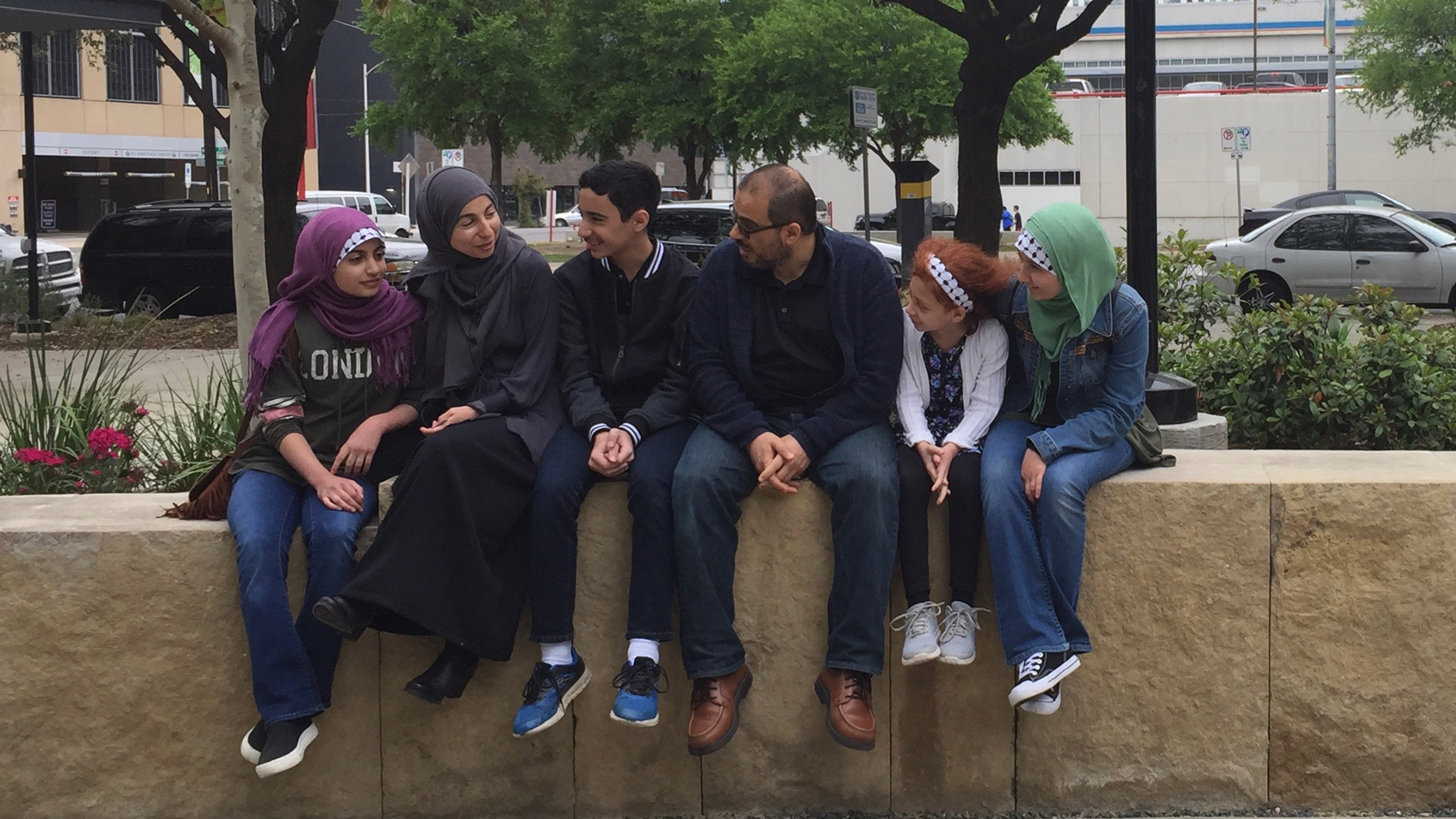
You have previously worked on documentaries about Palestinian and Israeli life. Why did you decide to focus on anti-boycott laws in the U.S.?
This is our first documentary in the U.S. In 2015, Israel enacted a law punishing Israelis calling for a boycott of the country. That became an inspiration across Europe and the U.S. and we understood that until these measures faced public scrutiny, they would continue to spread.
In most of America today, if you want to keep your public contract, you need to sign a pledge promising that you’re not going to boycott Israel. That is a pretty significant addition to your commitments to your employer that have absolutely nothing to do with your professional responsibilities. This is a foreign policy matter—now introduced as a condition for employment. Some observers have called this a new McCarthy era where your political viewpoint about Israel and Palestine is monitored. When we saw that there were Americans from different political backgrounds who are challenging these bills, we felt there was a compelling narrative thread to follow.
What do we know about how these laws are enforced?
The only way that you can actually enforce this law is by monitoring speech—by going to people’s social media and seeing if they are calling for a boycott, seeing what organizations they are members of, and observing whether they are going to pro-Palestinian protests. So you’re talking about a pretty significant surveillance system that needs to be imposed on millions of Americans who hold government contracts, including those on the county and municipal level. In its full form, the laws are pretty terrifying.
But in its practical form, it’s more like what was faced by newspaper editor Alan Leveritt. If the government doesn’t like you, it is more likely that the law will be enforced against you. [The Arkansas Times is a liberal newspaper in a conservative, southern state.] It’s a way of punishing political opponents.
After Alan refused to sign the pledge that his newspaper would not boycott Israel, the state stopped advertising in his newspaper.
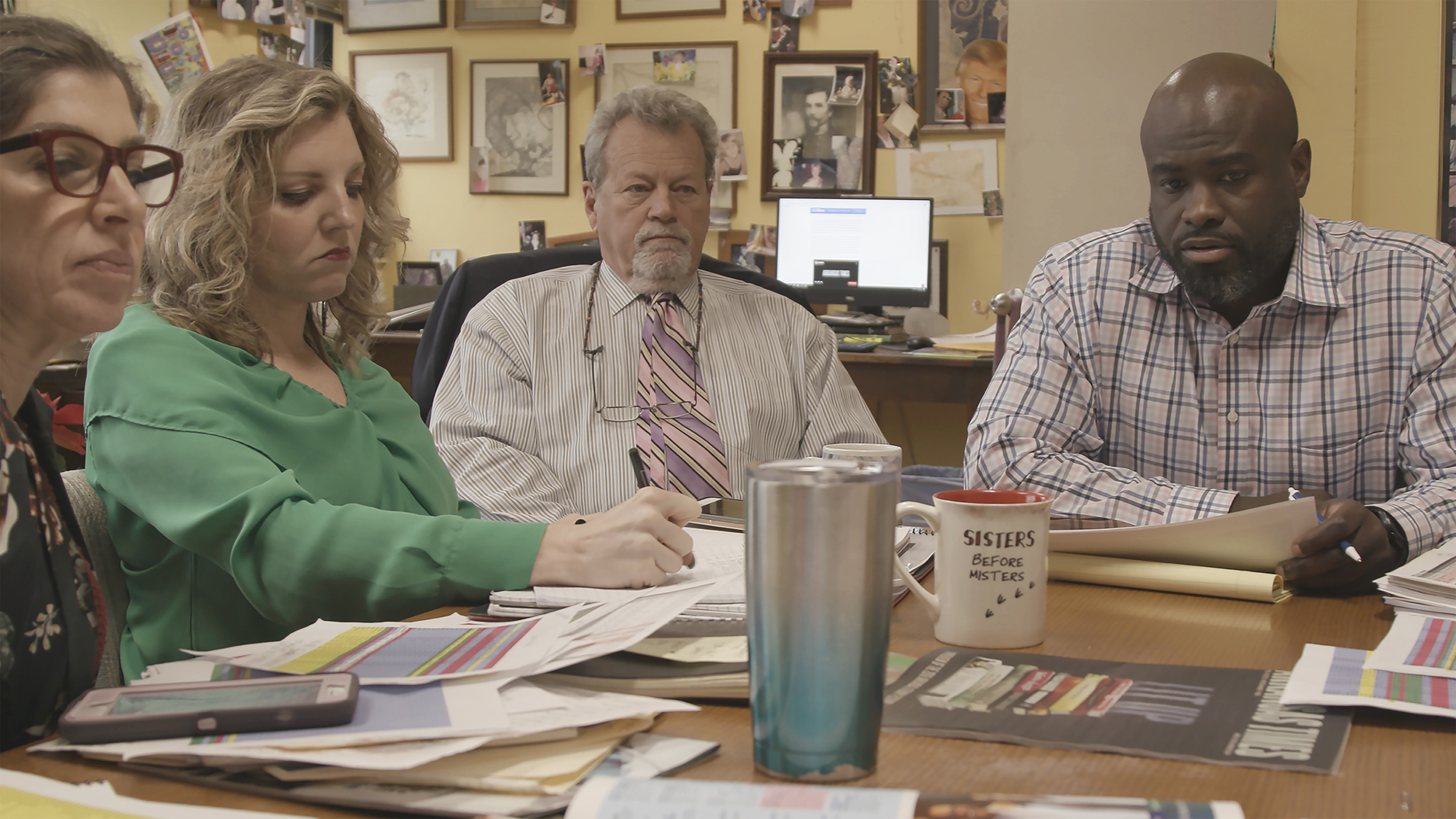
Has anything major changed since the film’s production wrapped up that is important to know regarding these anti-boycott bills?
We always wondered whether these bills could become templates for attacking boycotts in other issue areas. That has started happening for those with public contracts in many states who may want to boycott the fossil fuel and firearms industries, as well as those related to racial equality and rights for transgender people and reproductive rights.
Republicans are really using the anti-boycott bills as a centerpiece of their culture wars. The language in these bills is often the same. And state lawmakers have publicly spoken about where they got their inspiration from.
When it comes to the lobbying process for the anti-boycott bills regarding Israel, who has been most influential?
One player that Americans are beginning to become aware about is ALEC. They have been incredibly successful at passing cookie cutter bills across state lines. ALEC is an evangelical organization and many of its members push very socially conservative ideas. ALEC helped the anti-boycott bills targeting Palestinian human rights to spread quickly across the country with little scrutiny or debate.
What made you focus on the three characters at the center of the story?
We chose to focus on Bahia, Mik, and Alan because it helped you see the diversity of individuals affected by the anti-boycott laws.
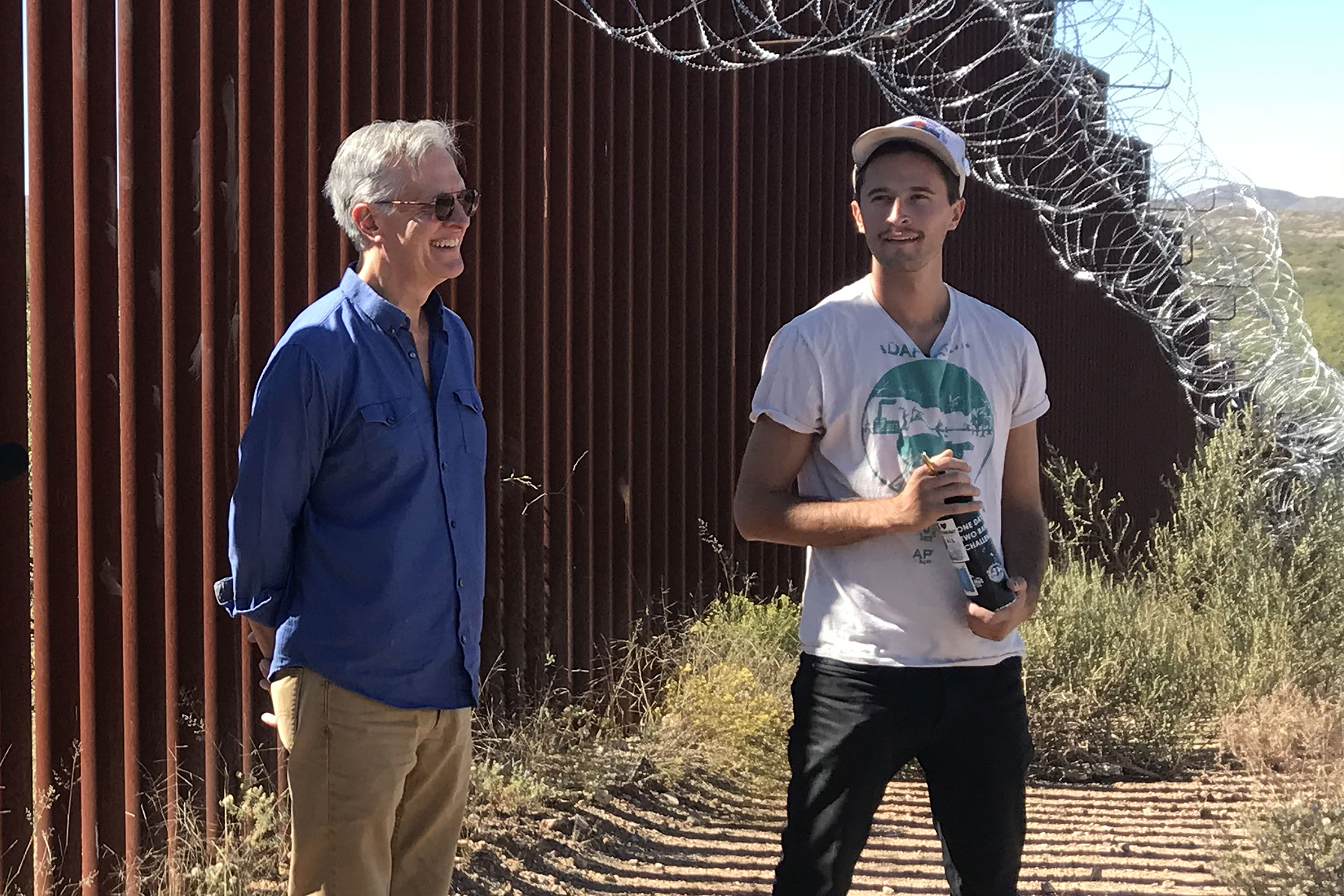
Bahia is Palestinian American; she has family in the West Bank. This Sunday, when settlers went on a rampage in Huwara, she was scared for her family. If this was happening two years ago while she still worked in the Texas school system, she would have been scared to speak about it because she could have been violating a contract—which prevents her from being able to express solidarity with her own family in the West Bank.
We also have Mik Jordahl, the lawyer in Arizona. He hadn’t been particularly active with pro-Palestinian politics. He visited the West Bank with his son and once he saw what was happening, he decided that he didn’t want his money to go toward companies that were benefiting from the oppression of the Palestinian people.
Alan Leveritt symbolizes what I think is probably where the vast majority of Americans are today. They might not be very involved or feel that they know much about Israel and Palestine. It’s not a priority. He has a local newspaper that covers Arkansas stories. That’s his focus. And then this bill appeared. He’s not boycotting Israel but he knew right away that this was a complete violation of the freedom of the press.
There’s a scene in Boycott where you capture a top Arkansas Democrat explaining that he voted for an anti-boycott law because he didn’t know much about it, and in hindsight that he would have voted against it. Can you tell us more?
Our research underscores that moment as pretty typical. For many lawmakers, including Democrats, they were presented with a bill introduced to them as pro-Israel and they just signed it.
This isn’t just about the Palestinian movement, right? This is about the First Amendment. This idea that they can just pass bills challenging something so fundamental to the identity of America—the First Amendment, freedom of speech—shows that there really needs to be broader accountability.
More Must-Reads from TIME
- Inside Elon Musk’s War on Washington
- Meet the 2025 Women of the Year
- The Harsh Truth About Disability Inclusion
- Why Do More Young Adults Have Cancer?
- Colman Domingo Leads With Radical Love
- How to Get Better at Doing Things Alone
- Cecily Strong on Goober the Clown
- Column: The Rise of America’s Broligarchy
Write to Sanya Mansoor at sanya.mansoor@time.com